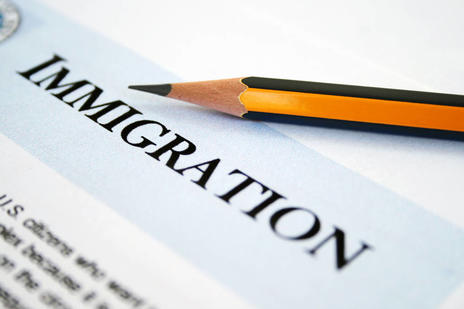Making Sense Out of the Current Congressional Immigration Proposals
Both Congress and President Donald Trump’s team have been extremely active in considering ways to revamp the current immigration framework concerning both the undocumented population and skilled immigration. In this first article from our series, we will provide a summary of the current congressional immigration proposals concerning green cards and temporary work visas for highly-skilled professionals. Our next article, will concentrate on the immigration proposals coming directly from the White House in the form of Executive Actions.
The Senate and House of Representatives have proposed a number of bills that would affect the most popular work authorization visas – the H-1B and the L-1. Here are the most popular.
The House
The High-Skilled Integrity and Fairness Act of 2017 by Rep. Zoe Lofgren (D-CA) – January 2017
• The bill would increase the H-1B prevailing wage requirements by abolishing the Level 1 wage category for all employers. This bill would also increase the wage at which an H-1B dependent employer would be exempt from the recruitment requirement to $130,000 (non-discretionary bonuses and similar compensation may be applied to wages based on their fair market) at the time of filing from $60,000 and also eliminate the Master’s degree exemption. Dependent employers are those with more than 15% of their workforce in H-1B status. Dependent employers that are not able to meet the new wage requirements would be required to make attestations regarding recruitment and non-displacement of U.S. workers.
• The bill provides for transparency for H-1B workers by requiring employers to provide immigration paperwork to the H-1B visa holder and protects H-1B workers by prohibiting liquidated damages for H-1B workers who cease employment prior to a date agreed to by the nonimmigrant and the employer.
• In addition, the bill proposes that 20% of the 85,000 H-1B visas each fiscal year would be reserved for start-up companies that employ less than 50 employees.
• The bill would replace the current permanent resident (green card) allocation system in which foreign national employees born in China, Mexico, India and the Philippines wait up to ten years or longer for a green card with a “first-come, first-serve” system.
• Employees would be permitted to use experience gained while working for the same employer that sponsors such worker for permanent resident status based on a PERM labor certification application.
The Protect and Grow American Jobs Act by Rep. Darrell Issa (R-CA) and Scott Peters (D-CA) – January 2017
• The bill would increase the H-1B dependent exemption to $100,000 from the current $60,000 and discontinue the Master’s degree exemption from the H-1B dependency. This would mean that employers with at least 15% of their workforce employed pursuant to H-1B status would be required to advertise for the available positions and prove that there are no U.S. workers available for the positions when the salary offered is less than $100,000.
• The bill is described by both liberal and conservative groups as not going far enough to modernize the H-1B program.
The Senate
The H-1B and L-1 Reform Act of 2017 by Sen. Chuck Grassley (R-IA) – January 2017
• The bill would replace the existing H-1B lottery process with a system that would prioritize H-1B petitions based on higher salaries and non H-1B dependent employers. First priority would be reserved for aliens who have earned an advanced degree in a field of science, technology, engineering, or mathematics (STEM) from a U.S. institution of higher education.
• The period of authorized admission for an H-1B nonimmigrant would be reduced from six to three years, with a three-year extension available for aliens with extraordinary ability or with advanced degrees or professors.
• The bill prescribes an H-1B labor condition application (LCA) fee, which is currently filed with the Department of Labor without filing fees.
• It also would increase the number of audits/investigations conducted by the U.S. Department of Labor of H-1B employers.
• In addition, a prevailing wage requirement similar to the H-1B program would be added to the L-1B specialized knowledge worker classification and add a yearly cap for such L-1B visas.
The Reforming American Immigration for Strong Employment (RAISE) Act by Senator Tom Cotton (R-AR) and Senator David Perdue (R-GA) – February 2017
• The bill aims to achieve the reduction of legal immigration by doing the following: Retain immigration preferences for the spouses and minor children of U.S. citizens and legal permanent residents while eliminating preferences for certain categories of extended and adult family members.
• Eliminate the 50,000 visas arbitrarily allocated by lottery.
• Limit refugee visas to 50,000 per year.
Related News and Articles
The Capitol Immigration Law Group has been serving the business community for over 15 years and is one of the most widely respected immigration law firms focused solely on U.S. employment-based immigration. Disclaimer: we make all efforts to provide timely and accurate information; however, the information in this article may become outdated or may not be applicable to a specific set of facts. It is not to be construed as legal advice.

